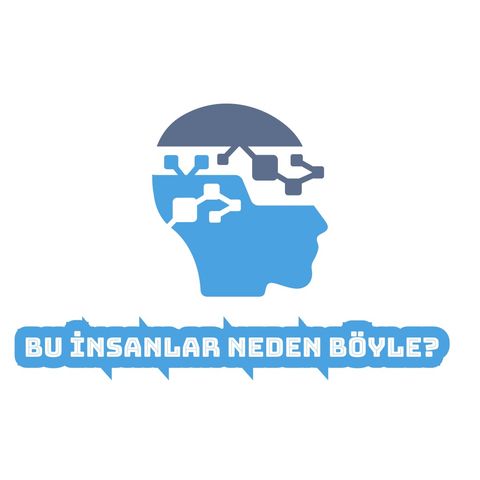Komplocular Kafayı mı Yemiş?

Descarga y escucha en cualquier lugar
Descarga tus episodios favoritos y disfrútalos, ¡dondequiera que estés! Regístrate o inicia sesión ahora para acceder a la escucha sin conexión.
Descripción
Her çeşit komplo teorisi var, hepsine de inanan çıkıyor. Peki bu insanlar kafayı mı yemiş, neden böyle şeylere inanıyorlar? Bu sorunun cevabını, bilimsel kaynaklara dayanarak cevaplamaya çalışıyoruz. Bahsedilen kaynaklar (bahsedilme...
mostra másBahsedilen kaynaklar (bahsedilme sırasına göre):
Wood M.J., Douglas K.M., Sutton R.M. (2012). Dead and alive: Beliefs in contradictory conspiracy theories. Social Psychological and Personality Science. 3(6), 767-773. https://doi.org/10.1177%2F1948550611434786
Imhoff, R., & Lamberty, P. (2020). A bioweapon or a hoax? The link between distinct conspiracy beliefs about the Coronavirus disease (COVID-19) outbreak and pandemic behavior. Social Psychological and Personality Science. https://doi.org/10.1177%2F1948550620934692
Alper, S., Bayrak, F., & Yilmaz, O. (2020). Psychological correlates of COVID-19 conspiracy beliefs and preventive measures: Evidence from Turkey. Current Psychology. https://doi.org/10.1007/s12144-020-00903-0
Douglas, K. M., Sutton, R. M., Callan, M. J., Dawtry, R. J., & Harvey, A. J. (2016). Someone is pulling the strings: Hypersensitive agency detection and belief in conspiracy theories. Thinking & Reasoning, 22(1), 57-77. https://doi.org/10.1080/13546783.2015.1051586
van Prooijen, J. W., Douglas, K. M., & De Inocencio, C. (2018). Connecting the dots: Illusory pattern perception predicts belief in conspiracies and the supernatural. European Journal of Social Psychology, 48(3), 320-335. https://doi.org/10.1002/ejsp.2331
van Prooijen, J. W. (2017). Why education predicts decreased belief in conspiracy theories. Applied Cognitive Psychology, 31(1), 50-58. https://doi.org/10.1002/acp.3301
Información
| Autor | Sinan Alper |
| Organización | Sinan Alper |
| Página web | - |
| Etiquetas |
Copyright 2024 - Spreaker Inc. an iHeartMedia Company
